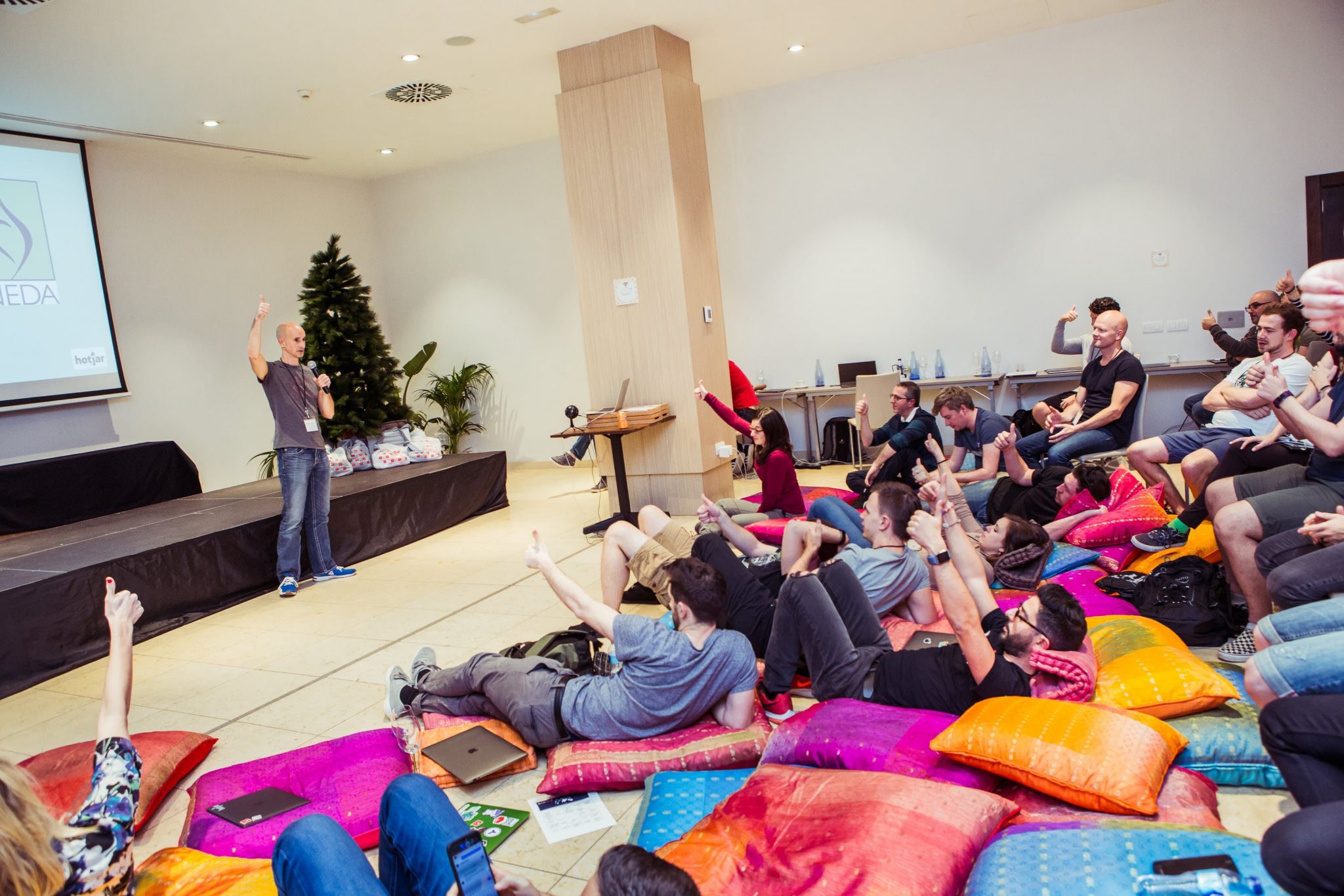Skift Take
The methods for booking a suitable corporate retreat these days still feel very experimental, with so many nuances to consider. But the rewards will be there for the platforms that get it right.
Corporate group bookings aren’t new, but scaling them up to unite hundreds of scattered employees will be a new challenge after the pandemic.
As remote work infiltrates company culture, the logistics of these mass company meetings could cause headaches for organizations.
It’s going to be complicated.
Join Us at the Skift Short-Term Rental and Outdoor Summit on May 19
On the accommodation side, how will organizations find the right property, with enough bedrooms, breakout areas and internet capabilities? Picking the most convenient location for the masses is another hurdle, as is working out which airlines fly direct to the nearest airport. Then there’s budgets, plus those fluid safety and risk factors with the staggered reopening of borders.
Travel tech companies are on the case, fortunately, and some even before coronavirus disrupted the world’s work habits.
Ahead of their Time
Two booking platforms have long sought to tackle the distributed workforce conundrum: Troop and NextRetreat.
Spanish company Troop, formerly known as TroopTravel, was founded in 2017. The platform is geared towards larger “Fortune 100” size organizations, such as food and beverage company Mondelez, which pay a licence fee to use its team planning software.
It claimed it has tripled its customer base, and revenue, over the past 12 months despite the fact no in-person meetings have been held. It also said it has renewed customers for multiple-year deals.
“We continue to see significant interest this year as organizations look for tools that simplify the complexity of the new operating environment,” said Troop’s founder Dennis Vilovic.
As well as the accommodation, flight and transport planning on offer, it shows how much carbon emissions the meetings will generate, to help companies avoid these rather than offset them, while it also displays data related to Covid-19 travel restrictions, to source the safest location.
“Our customers are normally positioning our technology as the starting point of the planning process for any type of meeting, from two people upwards,” Vilovic added.
Living the Concept
NextRetreat operates at the smaller end of the scale, targeting meetings for 10 to 200 people. The startup, based in Slovakia, raised $675,000 in seed financing last year, but started life earlier as a retreat in Tenerife in the Canary Islands.
Co-living space Wolfhouse Los Gigantes was opened in 2017 by Martin Studencan, who is CEO of NextRetreat. He later partnered with other property owners, as well as workspace and local service providers, in the UK, Bali and Croatia to expand Wolfhouse venues, hosting technology companies like Hotjar, CM Commerce and Fresh8Gaming. Wolfhouse has since been wound down, with NextRetreat developed after he identified that more companies will want to start finding, and booking, these types of retreats.
The platform pulls in hundreds of thousands of venues from the likes of Priceline Group and Travelport, adding algorithms that filter the most relevant properties. It’s intended for companies to use directly, but he plans to partner with travel management companies at a later stage. It also plugs into Kiwi.com for flights, and it displays available flights from multiple locations that synchronize with the availability of the selected venue.
He’s also building in a request-for-proposal service, for those companies that have more specific questions, such as the exact Wi-Fi speed, and is looking to partner with more co-working venues, including properties like Branches in the U.S.
On the agency side, corporate travel platform TripActions has its eye on this market, and is spending some of its $155 million funding on a new product called Teams, which launches next month.
Teams will feature a central hub for retreat organizers, where they can view and monitor all participants’ travel status and communicate with them. All policy and controls are in one place, a spokeperson said, which ensures compliance, cost control and duty of care. “Participants are guided through their entire booking process to get to the event efficiently and get back home safely,” they added.
Studencan believes these types of platforms and systems are already in high demand. “With digital health passports and borders reopening, companies are now start planning their trips, because they tend to plan three to six months ahead,” he said.
However, as some organizations rethink just how remote they want their employees to be, travel technology companies and accommodation providers wanting to tap into this niche area may only have a short window to showcase the benefits of corporate retreats.
Register Now for the Skift Short-Term Rental and Outdoor Summit on May 19
Have a confidential tip for Skift? Get in touch
Tags: canary islands, corporate travel, Kiwi.com, meetings, priceline, slovakia, travelport, tripactions
Photo credit: Analytics company Hotjar uses NextRetreat to book its annual gatherings. NextRetreat
